The first trimester of pregnancy is such an exciting time. You’ve gotten your positive pregnancy test and the journey to motherhood has begun!
One thing’s for sure, the first trimester can get pretty uncomfortable pretty quickly for a lot of mamas. Having the right first trimester essentials on hand can make things a whole lot more manageable.
That’s why I put together this guide to first trimester essentials. I want to make sure you have everything you need to get your pregnancy off to a good start. We’ll make sure you and baby are healthy, happy and comfortable from the very beginning.
As a bonus, you’ll find information and tips about some common first trimester symptoms along with the products that will help you deal.
Ready, mama? Let’s get this [pregnancy] party started!
Health essentials
As soon as you see those two lines on your pregnancy test it’s important to get on a prenatal vitamin. Prenatal vitamins make sure our bodies are getting everything they need to grow a baby.
They pick up the slack of vitamins and minerals we may be lacking in our diet and give a boost for the most important nutrients. The first trimester is when so much growing, organ and brain development takes place, so the right supplements are key.
When it comes to baby development, the most important nutrients are folic acid and iron. Folic acid helps prevent neural tube defects and other brain abnormalities. Iron is crucial for your body’s blood supply and supports the development of the placenta and fetus.
Choosing a prenatal vitamin
When you are choosing a prenatal vitamin there are plenty of over the counter options to choose from. Interestingly, in the US, prenatal vitamins (or any supplements or vitamins for that matter) are not regulated or checked for safety by the FDA. However, it’s still considered best practice to take one.
So, what’s a mama to do?
- First and foremost, ask your provider what prenatal vitamins they recommend
- Next, make sure you are choosing a prenatal vitamin from a reputable brand
- Check to make sure the prenatal vitamin contains folic acid, iron, DHA, and B6. Beyond that, a good prenatal should also contain calcium, Vitamin A, Vitamin D, Zinc, and Vitamin C (source)
What’s more, I always recommend choosing an organic option in order to reduce potential exposure to toxins––especially while pregnant!
When it comes to your prenatal, you can decide if a gummy, tablet or liquid option is right for you. Depending on your tolerance for supplements and how significant your pregnancy nausea is, one form might work better than another. It’s different for every mama!
Here are a few of my favorite organic prenatal vitamins:
- MyKind Organics Prenatal Gummy
-
MegaFood, Baby & Me 2, Prenatal and Postnatal Vitamin with Active Form of Folic Acid
Fish oils during pregnancy
In addition to taking a prenatal vitamin, more and more providers are recommending the addition of omega-3 fish oil to your daily routine. Most pregnant women here in North America don’t get the recommended amount of omega-3s from their diet, and a supplement can really benefit both mama and baby during pregnancy.
Let’s take a look at the benefits of fish oil during pregnancy:
- Supports baby’s early visual development
- Supports baby’s neurological development
- Supports baby’s nervous system development
- May prevent pre-term labor
- Lowers the risk of preeclampsia
- Associated with higher birth weight for baby
- May decrease the risk of prenatal or postpartum depression
But remember, not all fish oil supplements are created equal. Your fish oil supplement should not smell or taste fishy at all. In fact, if they do, the oils may be going rancid or it may indicate a lesser-quality fish oil that has begun to degrade.
Nordic Naturals is the official Omega-3 of the American Pregnancy Association. It’s a high-quality brand of fish oil supplement that you can trust for you and your baby! This is the we give our kids too ad I cannot recommend it enough!
Morning sickness must haves
Perhaps the most well known of all pregnancy symptoms––morning sickness. And, most mamas agree, it certainly doesn’t only strike in the morning! Pregnancy nausea can affect you at any hour of the day.
Let’s dig into what it is, why it happens, when it peaks and what you can do to cope.
Why morning sickness happens during pregnancy
The exact cause of morning sickness is unknown, but like with most things in pregnancy, is probably related to the surge and changes in hormones. Especially the pregnancy hormone hcG.
In fact, morning sickness tends to peak for most women between weeks 9-11 of pregnancy. This correlates exactly with when hcG reachest its highest level during pregnancy. Coincidence? Probably not.
While you can’t exactly control the hormones that are causing your morning sickness, there are two other factors that seem to contribute to the why of morning sickness: an empty stomach and low blood pressure.
By regularly eating small meals and snacks that contain a balance of protein and carbohydrates, you can help keep your pregnancy nausea at bay.
How to handle morning sickness
In addition to eating regular small meals and snacks to avoid an empty stomach and keep your blood sugar up, here are some morning sickness essentials:
- Acupressure bands: acupressure bands are elastic bracelets that go around your wrist and have a nob that applies pressure to point that is supposed to relieve nausea. Many mamas swear by acupressure bands for morning sickness relief. And they are inexpensive, so why not give it a try!
- Anti-nausea tea: I always try to turn to herbal remedies and support whenever possible, and anti-nausea tea is a great herbal remedy for pregnancy nausea. You can use classic anti-nausea herbs like peppermint or ginger, or get an herbal tea blend specially formulated for pregnancy nausea. Earth Mama and Pink Stork both make wonderful organic options
- Ginger candies: ginger is well known for its powerful anti-nausea properties. Ginger candies, dried ginger, or crystallized ginger are all effective for combatting morning sickness
- Other hard candies for morning sickness: in addition to ginger candies, many mamas find sour-flavored candies effective for morning sickness, too. Three Lollies makes an organic version of their pregnancy pop drops that I highly recommend
- Strong mint gum: some mamas find that keeping a piece of strong mint gum in their mouth is another effective strategy against pregnancy nausea. This all-natural peppermint gum is perfect
Headaches during pregnancy
Headaches are another symptom that is all too common during the first trimester of pregnancy. When you’re already feeling exhausted and nauseous, a headache just adds insult to injury. Let’s see what can help.
Why do you get headaches during pregnancy?
Headaches during pregnancy, and specifically during the first trimester, are caused by the surging hormones and changes in blood volume in your body. What’s more, the potential stress of pregnancy, exhaustion, low blood sugar, and caffeine withdrawal (if you’re cutting back), can also lead to more frequent headaches.
What to use for headaches during pregnancy?
In general, it’s best to avoid any and all medication during pregnancy unless absolutely necessary. While some medications are technically pregnancy safe, non-medicine alternatives are usually better. Before taking any medication, over the counter or otherwise, be sure to discuss the decision with your provider.
Luckily, there are some natural remedies for headaches that you can try during pregnancy.
- Essential oils: you can do a massage with essential oils or diffuse some essential oils to help treat your pregnancy headaches and reduce stress. Some of the most common essential oils used for headaches are peppermint, lavender, rosemary, chamomile, and eucalyptus (source). You can also find premade essential oil blends for headaches, like this one
- Warm compress: Applying a warm compress to your head or neck can help relax tense muscles and relieve pressure that may be causing your headache. What’s more, taking the time to be still and relax while applying the compress can do wonder for a headache in itself
- Acupressure: acupressure can be a powerful tool again a number of pregnancy ailments, and headaches are no exception. To treat your headache with acupressure, try this wearable acupressure relief for your hand
Pregnancy constipation
During pregnancy, and especially during the first trimester, constipation can be a issue for a lot of mamas. This constipation can lead to painful pregnancy hemorrhoids.
There are actually a number of things that make us more susceptible to constipation in pregnancy, let’s take a look:
- Low fiber diet: when morning sickness is in full swing, it can be difficult to eat a varied diet with lots of fiber to keep things moving, making constipation worse
- Pregnancy hormone relaxin: during pregnancy, your body produces a hormone called relaxin. This hormone allows your ligaments and muscles loosen to accommodate a growing baby and give birth! This same hormone can cause the muscles in your intestines to slow down, resulting in constipation
- Surge in progesterone and estrogen: both hormones seem to be common culprits for causing constipation
- Less movement: exercise and movement are a great way to keep yourself regular. Often these habits fall to the side during the first trimester when you’re feeling kinda blah
- Increased iron: for many women, the high levels of iron found in some prenatal vitamins can result in constipation. My midwife suggested taking a prenatal without iron, and a separate iron supplement that was “slow release” which isn’t as constipating
- Pressure from the expanding uterus: this is another reason it can be difficult to regularly empty your bowels during pregnancy
Pregnancy hemorrhoid and constipation essentials
- Hemorrhoid creams, balms, and salves: hemorrhoid creams are one of the best ways to soothe and reduce inflammation. There are several natural options available including this Organic Hemorrhoid Salve by Thena
- Witch hazel pads: witch hazel has a soothing effect on uncomfortable hemorrhoids
- Hydration: staying well hydrated is one of the best lines of defense against constipation. Drink to thirst, or even aim for 10-12 glasses of water per day (instead of the recommended 8 while not pregnant) (source)
- Herbal tea: there are a number of herbal teas that can help keep you regular and get things moving. In particular, try Smooth Move by Traditional Medicinals
- Natural stool softeners: try adding prunes and ripe pears to your diet
Maternity clothing essentials for the first trimester
For most mamas their baby bump doesn’t pop until a little ways into the second trimester, but that doesn’t mean you can’t benefit from some maternity clothes right away—yes, really! You’ve probably already noticed that you’re living in leggings and yoga pants and your jeans are pretty tight.
What you can do is get a few maternity staples that will grow with you throughout your entire pregnancy or bridge the gap between your regular clothes and full on maternity-wear. Here are my top picks for first trimester mamas:
- Bellaband: this is the best for first trimester mamas (and beyond) it’s basically a tight, solid colored band that goes over the button and fly of your shorts and jeans. It allows you to wear them without buttoning them and creates a cute, layered look
- Nursing bras: You may already be feeling uncomfortable in your pre-pregnancy bras. Sore, tender breasts are super common in the first trimester. They might be getting a little bigger, too. I recommend getting some nursing bras now instead of investing in bigger bras and having to by nursing bras for postpartum
- Soft bras for sleeping: if your breasts are very sore and tender, sleeping in a soft “nighttime” bra can really help
- Maternity leggings: in the first trimester, you don’t need the full belly panel leggings, but these underbelly maternity leggings are perfect for keeping you comfortable as that belly grows!
- Maternity underwear: thick banded maternity underwear are so dang comfortable, I always tell all my pregnant friends to get them right away! Thank me later
Must have pregnancy books
During the first trimester, so many mamas want to learn as much about pregnancy as possible. You’re excited to be pregnant but probably aren’t sharing the news with too many people just yet.
This is a great time to get some pregnancy books! You can read up about pregnancy now and have a reference on hand as your pregnancy progresses.
- What to Expect When You’re Expecting: this is a classic pregnancy book that stands the test of time
- Mama Natural Week-by-Week Guide to Pregnancy: this book provides a natural take on all of your questions, concerns, planning and what to expect during each week of pregnancy
- Real Food for Pregnancy: this is a highly reviewed, well researched book all about prenatal nutrition
- Ina May’s Guide to Childbirth: this is a must read for every mama hoping to have a natural childbirth!
Documenting your pregnancy
Lastly, we can’t forget the most fun first trimester essential of all: fun ways to document your pregnancy! Now is the perfect time to start a weekly or monthly ritual to document this journey! You can:
- Take pictures of your growing bump
- Write down your weekly symptoms, feelings, and milestones in a journal
- Write letters to baby
Pregnancy journal
There are so many wonderful (and beautiful!) pregnancy journals out there. When you are browsing, consider if you want one with lots of structure and prompts, a journal that is broken down by week, a monthly journal, or one that is more open-ended.
You can also opt for a journal that has a spot to put a picture to create a scrap book. Here are a few of my favorites:
- 9 Month Pregnancy Journal – simple, pretty, and modern with lots of spots for photos
- The Belly Book – fun, bright, colorful
- Pregnancy Planner and Keepsake Journal – doubles as a planner and includes lots of great info!
Bump photo props
Taking weekly or monthly photos during your pregnancy is such a fun way to document the journey. You’ll love looking back, and even comparing your bump photo with subsequent pregnancies.
Some mamas take their photo in the same shirt each time and even in the same spot so that you can really track the growth as it happens.
To add a bit of whimsy to your bump photos, here are some great prop ideas:
- Baby Bump Chalkboard – fill in your week, what baby is the size of, and how mama is feeling each week
- Modern countdown chart – simple circle where you’re at in each photo
- Weekly Pregnancy Update Prop – cute and colorful cards to hold up during each week to indicate how far along you are
You’ll be all set with these first trimester essentials, mama!
Well, mama, you are ready to rock this pregnancy! The journey to motherhood is an amazing and special time. There are times where you may feel stressed, worried, and uncomfortable, but just remember that at the end, your sweet babe makes it all worth it.
In the meantime, these first trimester essentials will help you feel more comfortable, celebrate the journey, and get educated about what’s to come.
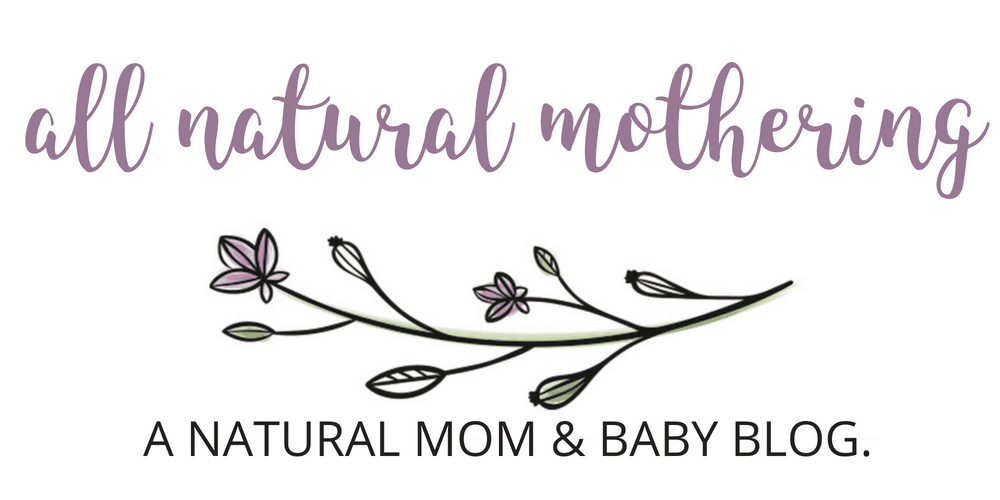









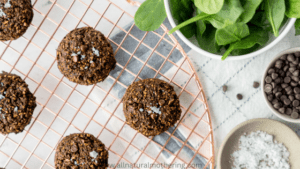


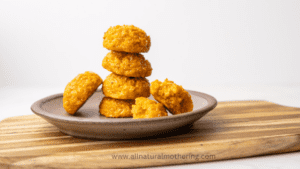
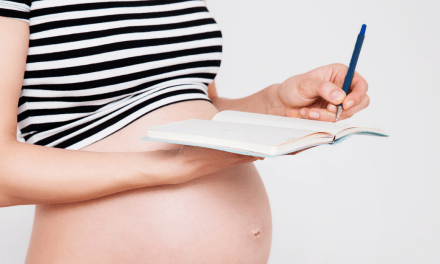
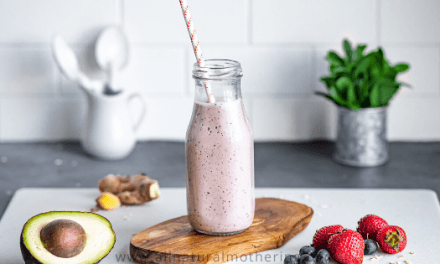


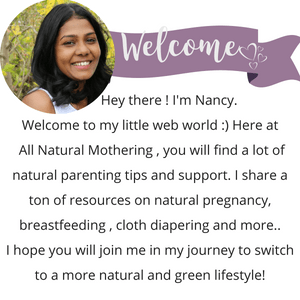
Trackbacks/Pingbacks